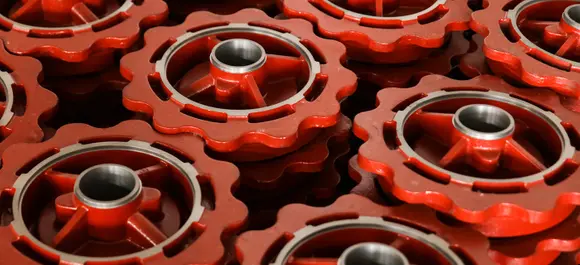Mobile:+86-311-808-126-83
Email:info@ydcastings.com
Essential Casting Equipment for Every Hobbyist and Professional in 2023
The Essential Guide to Casting Supplies Unlocking the Art of Metal Casting
Casting is one of the oldest manufacturing processes in human history, dating back to ancient civilizations. It involves pouring molten metal into a mold to create intricate shapes and structures. Whether you're a hobbyist or a professional, having the right casting supplies is crucial to achieving high-quality results. This article will explore the essential supplies needed for successful metal casting, along with tips to help you navigate the world of casting materials and tools.
Essential Casting Supplies
1. Molds Molds are the backbone of the casting process. They can be made from various materials, including sand, metal, or ceramic. Sand molds are the most common, especially for beginners, due to their affordability and ease of use. Metal molds, on the other hand, provide greater durability and are suitable for high-volume production.
2. Pattern A pattern is a replica of the object to be cast, usually made from wood, plastic, or metal. Patterns are used to create molds, and their design can impact the final product's accuracy and quality. Ensure that your pattern accounts for shrinkage as the metal cools.
3. Melting Furnace A melting furnace is essential for heating the metal to its melting point. There are various types of furnaces available, including electric, propane, and induction furnaces. The choice of furnace depends on the metal you are casting, as different metals have varying melting points.
4. Metal Alloys The type of metal you choose for casting significantly impacts the final product. Common casting metals include aluminum, bronze, brass, and iron. Each metal has unique properties that affect its strength, weight, and appearance. Understanding the characteristics of these metals will help you select the best option for your project.
5. Crucibles Crucibles are heat-resistant containers used to hold metal while it is being melted. They come in various materials, such as graphite, ceramic, or silicon carbide. Selecting the right crucible is important to ensure it can withstand the high temperatures of molten metal without cracking or breaking.
6. Safety Gear Safety should always be a priority in any casting operation. Basic safety gear includes heat-resistant gloves, face shields, aprons, and closed-toe shoes. Additionally, proper ventilation is crucial to minimize exposure to harmful fumes generated during the melting process.
casting supplies

7. Tooling Supplies Various tools are necessary for the casting process, including ladles for pouring molten metal, chisels for working on molds, and tongs for handling hot materials. Investing in high-quality tools can improve efficiency and safety in your casting endeavors.
8. Finishing Supplies Once the casting is complete, finishing supplies such as brushes, grinders, or sanders are required to refine the surface of the cast piece. Polishing compounds and coatings can also be used to enhance the final appearance and protect the metal from corrosion.
Tips for Successful Casting
- Research and Practice Before you start your casting project, take the time to research techniques and best practices. Watching tutorial videos, reading books, or joining casting forums can provide invaluable insights and help you avoid common pitfalls.
- Start Small If you're new to casting, begin with small projects to gain experience. This approach allows you to experiment with different materials and methods without significant risk or investment.
- Experiment with Alloys Don't be afraid to try different alloy combinations to see how they affect the final product. Each alloy has distinctive properties that can dramatically influence the durability and aesthetics of your castings.
- Keep a Clean Workspace A tidy workspace not only enhances safety but also improves your efficiency. Make sure to keep all tools and materials organized and free of debris, making it easier to focus on the task at hand.
Conclusion
Casting can be a highly rewarding process, allowing you to create unique and intricate metal objects. By investing in high-quality casting supplies and honing your skills through practice and research, you can unlock the full potential of metal casting. Whether you're creating art, functional items, or prototypes, the right tools and materials will help you achieve exceptional results in your casting projects.
-
Why Should You Invest in Superior Pump Castings for Your Equipment?NewsJun.09,2025
-
Unlock Performance Potential with Stainless Impellers and Aluminum End CapsNewsJun.09,2025
-
Revolutionize Your Machinery with Superior Cast Iron and Aluminum ComponentsNewsJun.09,2025
-
Revolutionize Fluid Dynamics with Premium Pump ComponentsNewsJun.09,2025
-
Optimizing Industrial Systems with Essential Valve ComponentsNewsJun.09,2025
-
Elevate Grid Efficiency with High-Precision Power CastingsNewsJun.09,2025











